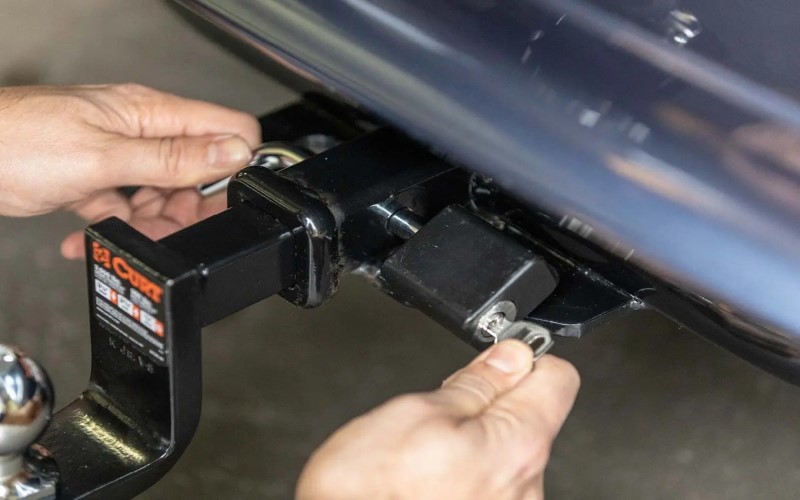Types of Trailer Hitch Locks
Understanding the different types of hitch locks is crucial when securing your trailer. The most common types include couplers, hitchpins, and wheel locks. Each type fulfills a unique purpose. For example, hitch pins with lock effectively prevent unauthorized removal of the hitch pin, adding an extra layer of security. Coupler locks, however, fit over the trailer’s coupler to block connection, while wheel locks immobilize the trailer by locking the wheels.
Importance of Secure Trailer Hitches
Securing your trailer is not just an option—it’s a necessity to prevent theft and ensure safety. According to AAA data, trailer theft can cost thousands of dollars in lost property. Beyond financial loss, the emotional stress can be considerable. Investing in robust security measures like hitch pins, coupler locks, and wheel locks provides peace of mind and protects your trailer and its contents.
Effective Methods for Hitch Security
Several methods can significantly enhance your trailer hitch security. High-quality locking pins are an excellent starting point as they can secure the hitch pin and prevent unauthorized removal. Installing hitch covers can protect the hitch from tampering and environmental damage. Wheel chocks or wheel locks can further secure your trailer by making it difficult to move. According to statistics from the National Park Conservation Association (NPCA), utilizing multiple theft deterrent devices can effectively reduce the risk of trailer theft.
Combine Security Methods
Implementing a combination of security devices, such as coupler locks, hitch pins with locks, and wheel locks, can offer a layered defense. This approach ensures that a thief must overcome multiple barriers, making stealing your trailer more challenging and time-consuming.
Tips for Choosing the Right Locking Pin
Choosing the right locking pin involves considering several factors. Look at the materials – stainless steel pins provide better durability and resistance to corrosion, making them suitable for various weather conditions. Check the locking mechanism; dual locking mechanisms offer enhanced security. Ease of use is another critical factor. Opt for a locking pin that is easy to operate but provides robust security.
Real-Life Examples
Imagine you’re on a camping trip and stopping at a service area for a quick bite. When you return, you find your trailer missing. Unfortunately, such incidents are common, highlighting the importance of using secure locking. A friend of mine faced a similar situation but had his trailer secured with coupler locks and hitch pins with locks. The thieves couldn’t breach these security measures, and the trailer remained safe.
Additional Considerations
While securing your trailer with hitch pins and other locking mechanisms is vital, it is also essential to consider other aspects of trailer safety. For instance, always park your trailer in well-lit, populated areas. Choosing a secure campground or a monitored parking area can significantly reduce the theft risk when parking overnight. Additionally, investing in your trailer’s alarm system can be a valuable deterrent against potential thieves. Technology has advanced to the point where GPS tracking systems for trailers are both affordable and effective, allowing you to monitor the location of your trailer in real-time.
Insurance and Documentation
Another important consideration is ensuring that your trailer is adequately insured. Comprehensive insurance can cover the cost of theft, damage, or loss, providing an added layer of financial security. Furthermore, always keep detailed documentation of your trailer, including photographs, serial numbers, and purchase receipts. This information can be invaluable in the event of theft, making it easier for law enforcement to recover your property and for you to process insurance claims.

